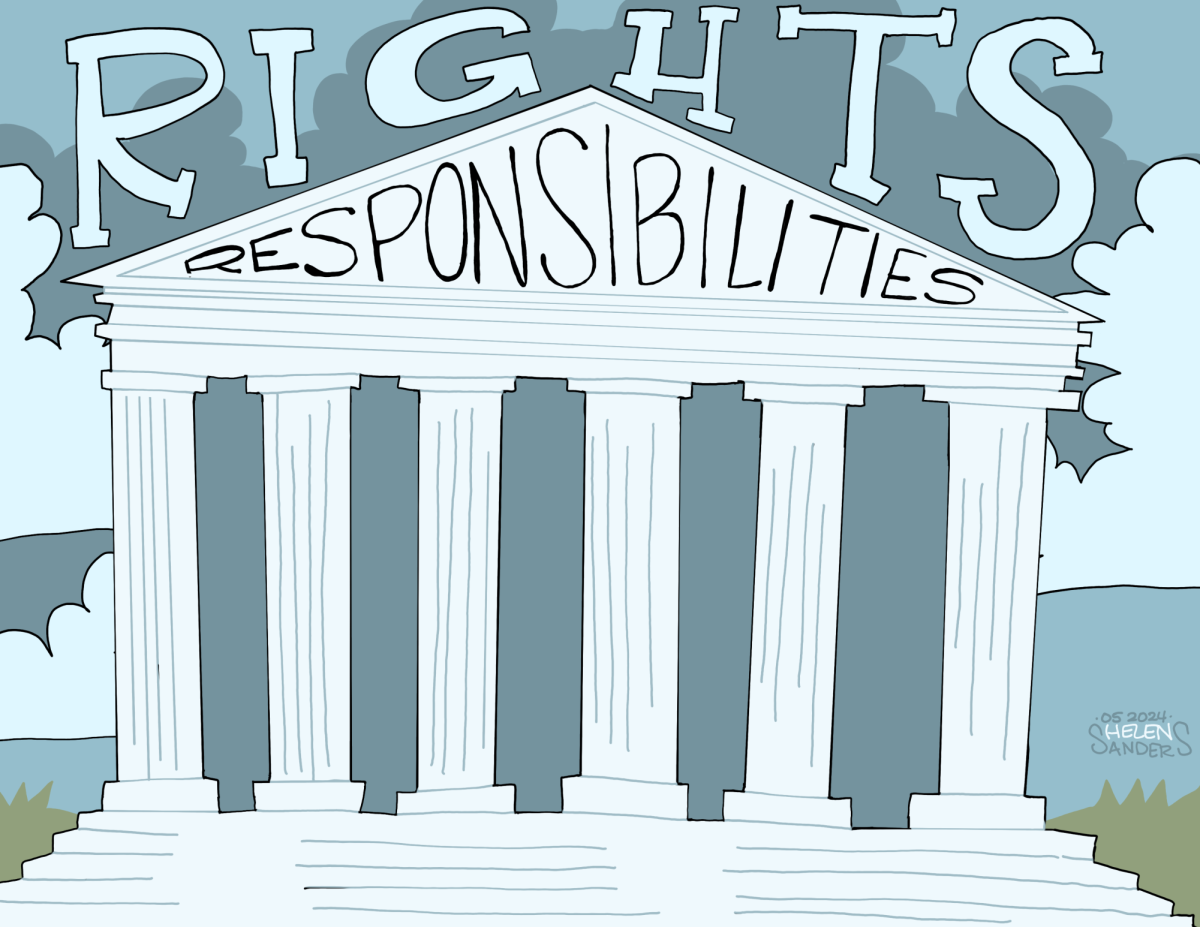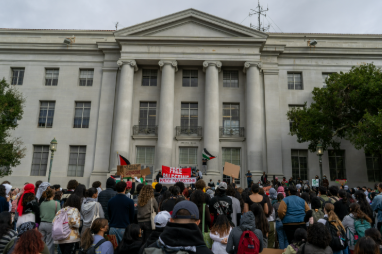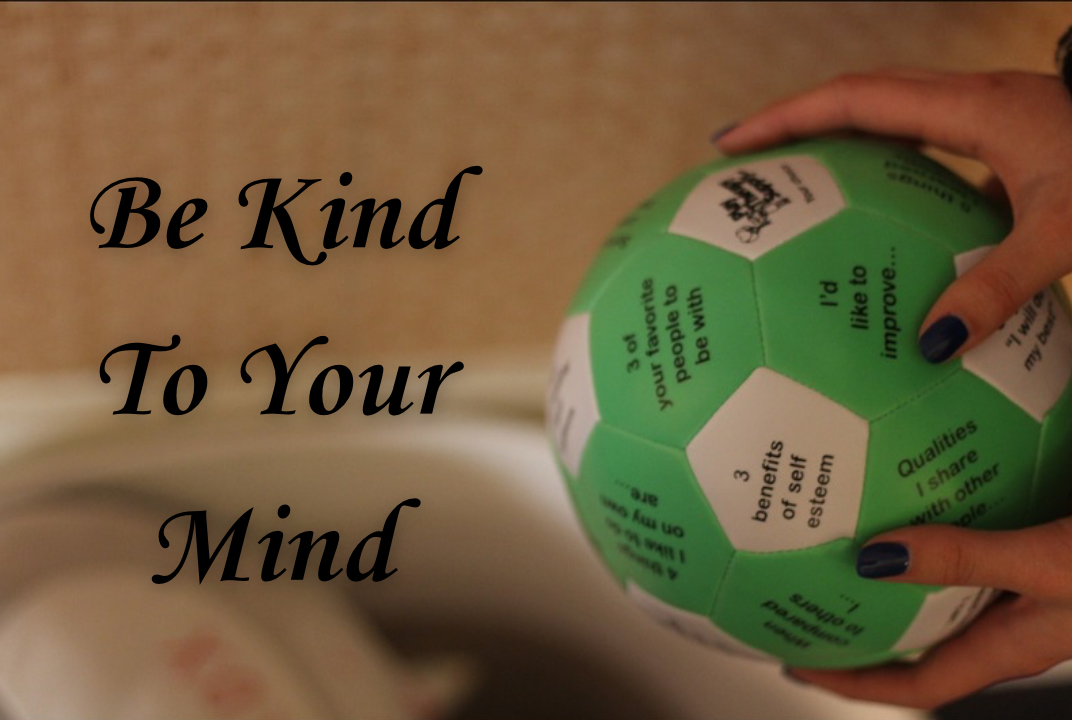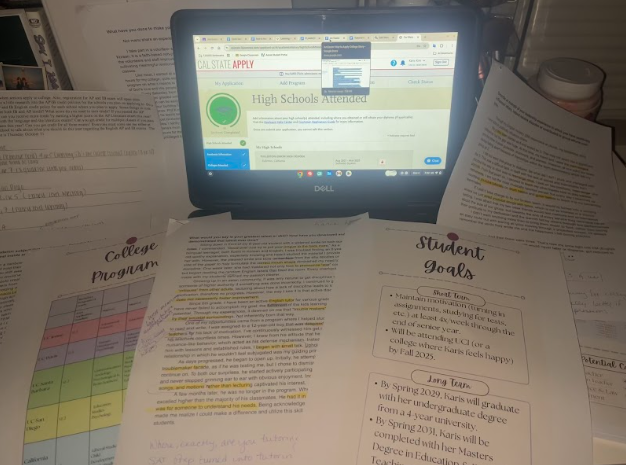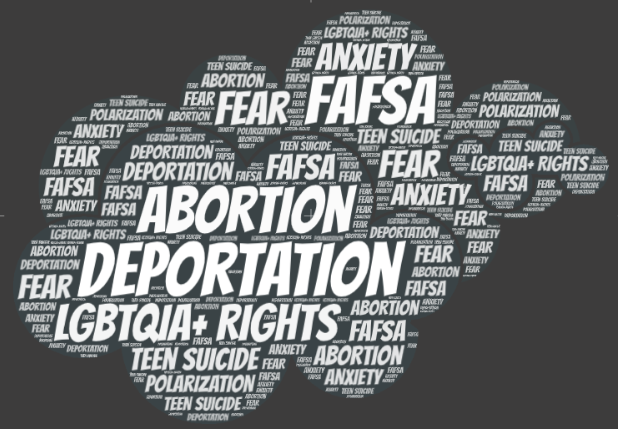As the graduating class of 2024 exits, they will take with them several lessons.
IB Anthropolgy teacher Sharon Hollon taught you that you have rights as citizens to exercise agency. AP United States History teacher David Shanebeck taught you the impact peaceful demonstrations have on democracy. Even though I am only a junior, journalism teacher Kimberley Harris has taught me about my constitutional rights to free speech.
That lesson includes the influential Tinker vs. Des Moines Supreme Court case in which siblings Mary Beth and John Tinker were suspended by the Des Moines, Iowa school district for wearing black armbands to school in protest of the Vietnam War.
The Tinker children and their friend were reprimanded by the Des Moines education system for opposing the Vietnam War, in which, by various accounts, the United States government was responsible for the death of some 2 million Vietnamese.
On behalf of the Tinkers, the American Civil Liberties Union filed a lawsuit which resulted in a Supreme Court ruling in their favor stating that students could not be stripped of their free speech rights on public school premises.
One would think that 59 years after Tinker, the issue of student freedom of speech would be settled. So it is alarming to see the reaction to current student protestors at the college level. In the Tinker case, the children were suspended from school. Today we now have young adults being suspended from universities such as Columbia.
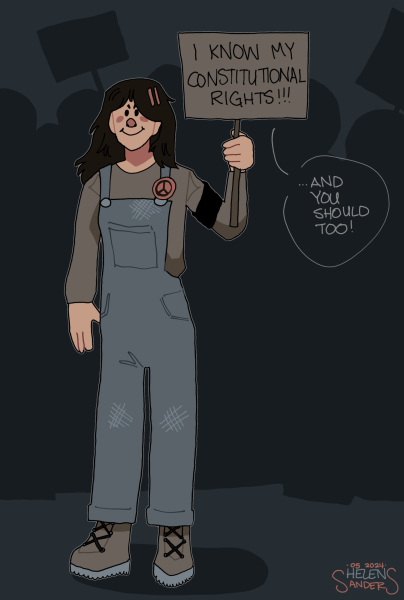
Current protestors demand that their campuses divest from corporations that manufacture and supply weapons, some of which are used by the Israeli military against Palestinians. Today we are witnessing a widespread student-led protest movement that recognizes Palestinian people as deserving of dignity and freedom from military bombardment and starvation.
Sure. Some of today’s student protest encampments have been rowdy and some violence has occurred, though many of those protestors were provoked by police or groups from outside.
Such swift and harsh reactions have even prompted the ACLU to publish an April 26 letter to college and university presidents calling upon campus administrations to protect student voices. As per the ACLU, “Administrators must resist the tendency to equate criticism with discrimination.”
Student protesters, including those who will graduate next week, must strive hard to claim their First Amendment right to free speech to express a political view, a right that the US Supreme Court had extended to high school students almost 60 years ago. In fact, their protests have captured the attention of President Biden who most recently, in a speech delivered at Morehouse College’s commencement, called for an immediate ceasefire.
This is why it is troubling as a student journalist to hear people dismiss the protests as lawlessness and anarchy. College students are merely exercising their rights as citizens of this country to advocate that their campuses and their government not support a cultural genocide.
Some claim that protestors deserve their arrests and suspensions. And in some cases I agree. The students in Michigan were wrong to arrive at the home of a school official with bloody props.
The only lesson more important than understanding freedom of speech is knowing we must avoid harassment and invasion of privacy.
Responsibility must hold up those rights lest your violent actions overshadow your own cause. Only responsible voices deserve to be heard.
A country that prides itself on its premier educational institutions should welcome controversial conversations about the realities of our world. Schools that deem themselves bastions of critical thinking should not banish their student body from expressing discontent with the United States government and its policies. In fact, that directly contradicts the American history lessons we learn in high school that teach us about John Locke and the idea of a government addressing the needs of its people.
We should applaud students for exercising their constitutional rights to oppose a war and show solidarity with Palestinians and other oppressed people everywhere who remain voiceless. The graduating class of 2024 may encounter these conversations and debates when they arrive at their new campuses in the fall. Student protests should serve as a reminder that Americans have a civic duty to effect change and strive for a better democracy.

